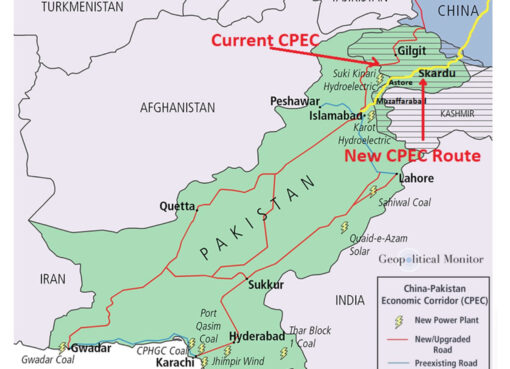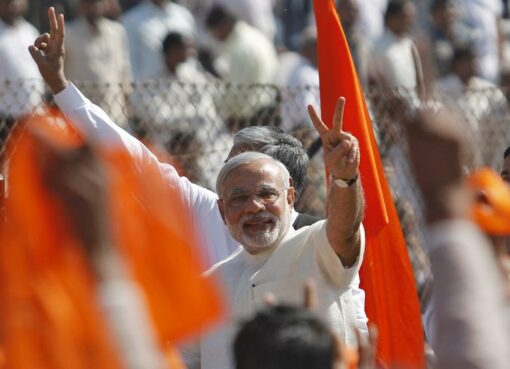Summary
India cannot take the current global empathy for granted forever. It may be better served to tweak its obsession with Pakistan by restraining its political leaders, service chiefs and the media against aggressive rhetoric on the neighbour. Such strategic `silence’ is more potent than military ops.
by Prasad Nallapati
India has finally shed its historical baggage. Ram Janmabhoomi-Babri Masid land dispute got its legal resolution and Jammu and Kashmir a new status. The two issues divided the country on communal lines for long giving ammunition to Pakistan to fish in troubled waters.
With these contentious issues now behind, the onus is now on the BJP-led government to take the country to prosperity and better integration by removing any misgivings of the Muslim community, particularly in Jammu and Kashmir. It’s an opportune time to terminally clip the ability of Pakistan to exploit fissures and secure the country and its people.
Global Sympathies Are With India Despite Pakistan’s Overstretch
The global scenario is equally conducive and supportive to India’s handling of these two fundamental issues plaguing the country despite Islamabad’s stroppy diplomatic and financial overstretch to get the international community to condemn the steps taken by New Delhi. In the process, Pakistan exposed its own barren body politic with only three of its buddies, China, Turkey and Malaysia, extending a reluctant hand. Indian diplomatic outreach convinced world leaders of the temporary nature of the restrictions imposed in Jammu and Kashmir to prevent terrorist violence and plans for their gradual easing.
Pakistan has invested hugely in the United States and Europe and tried to trumpet an odd Congressional hearing and a Labour Party resolution as a demonstration of success of its untiring efforts to internationalize the Kashmir issue. Their lobbyists, helped by a few friends of Pakistan in the administration, arranged meetings for Prime Minister Imran Khan with influential members and financiers of the Democratic Party like George Soros, who has spent $ 72 million on lobbying since Trump came to power.
The Foreign Affairs Committee of the Democrat-dominated House of Representatives did hold a hearing on human rights in South Asia, which instead focused entirely on the restrictions imposed in Jammu and Kashmir. Leading Democratic Presidential candidates, Elizabeth Warren and Bernie Sanders, have similarly criticized the human rights situation in the valley. Such Committee hearings have minimal media impact in the US. Ilhan Omar, one of the first two Muslim women members of the House, is particularly vicious probably due to her close identity with Turkish ideology of universal umma.
The Democratic Party, however, has other reasons to be unhappy with Prime Minister Narendra Modi than the Kashmir issue. The September 22ndHouston extravaganza of “Howdy Modi”, an unprecedented outpouring of Indian American community to welcome Modi, signified a new trend in the US electoral equations. Modi has not only invited President Trump to the event but also declared his support for his re-election next year. The Indian American community, hitherto staunch supporters of the Democratic Party, appears to be shifting toward the Republicans.
Notwithstanding such apprehensions, recent surveys by the Chicago Council on Global Affairs,including its 2019 report, show a consistently positive view of India among Democratic Party members and sympathizers and negative views on Pakistan.
Trump’s initial enthusiasm to mediate on Kashmir issue, expressed at his White House media briefing, after a meeting with Imran Khan on July 22 was much to do with a prospect of a Pakistan-aided agreement with Taliban leading to peaceful American withdrawal from Afghanistan and a verifiable action against terrorist groups. Ayesha Siddiqa, noted Pakistani author and currently a research associate at SOAS, London, wrote in the Printthat these meetings for Imran Khan and his Army chief Gen. Qamar Javed Bajwa were organized courtesy Britain and Republican Senator Lindsey Graham, who is close to Trump.
“Pakistan is expected to demonstrate ‘irreversible action’ against militancy that is verifiable by, what sources claim, CIA and the British MI6. It seems that in Washington the military trio agreed to an action plan that is “discreet, tangible, and measurable,” writes Siddiqa. The Senator is a frequent visitor to Islamabad and is instrumental in getting Trump to agree to Gen. Bajwa’s offer. Pakistan, however, has no intention to carry out such a sweeping action against terrorist groups and it was soon exposed with the Taliban carrying out attacks on American troops. Trump cancelled negotiations with Taliban and Islamabad lost its traction.
With pressure mounting from political opposition and the UN’s Financial Action Task Force (FATF), the army-installed Imran Khan’s government will remain under notice for a long time to try any misadventures against India. Economic stakes are high, and China is particularly concerned about the execution of its $ 50 billion CPEC projects. China prefers accommodation with India rather than confrontation.
India’s Strategic `Silence’ Proves More Potent Than Military Ops
India also may be better served to tweak its obsession with Pakistan. An absolute restraint needs to be observed by both political leaders, service officers and the media against launching aggressive rhetoric on the neighbour. TV channels may blackout all evening prime time high-decibel debates on Pakistan. They shall limit to carry only factual reports and objective analysis, nothing more. Other daily `ugly’ events like the evening military shows playing to the galleries on both sides of the Wagah-Attari border must end.
Such strategic `silence’ may prove to be more potent than military operations. Every verbal rhetoric from Indian side not only attracts multiple Pakistani counter responses but also rakes up emotional nationalistic feelings temporarily obscuring its governmental failures. Pakistan has several `fault-lines’, such as ethnic divisions and overbearing military, which will explode in the absence of the Indian factor. It will, in the long run, help strengthen Pakistan’s political parties and force its military back to their barracks.
Modi Govt Cannot Hide Its Domestic Failures
India, however, cannot take the current global empathy for granted forever. Its positives have so far been its political stability and economic strength and there are growing fears of the two slipping fast. Growth rates are expected to fall below 5 per cent, for the first time in several years, beating the market’s attractiveness for international investors. There is consistent fall in manufacturing, despite the `Make India’ drive, and farming sector. India failed to negotiate a favourable deal with the Asian trade grouping, ` RCEP’.
Politically, the BJP is struggling to retain its sway in provincial legislatures despite its convincing victory in the recent parliamentary elections. Maharashtra and Haryana are the latest instances. Southern states, mostly ruled by regional parties, are in deep morass. BJP’s maneuvers there to turn the chaos to its advantage have only added further pressure on these progressive states.
Modi government’s task has, therefore, been cut to deliver on domestic front to retain the country’s credibility abroad. It cannot hide its failures behind the façade of international recession. Many of the current economic problems are home-made and the BJP government need to re-prioritize its tasks rather than wasting time and resources on political reprisals and divisive communal issues.
(Prasad Nallapati is President of the Hyderabad-based think tank, The Centre for Asia-Africa Policy Research)




